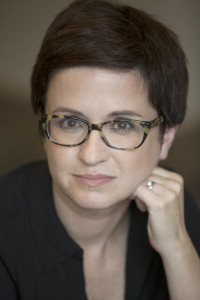 French resistance fighter, Ravensbrück concentration camp survivor and life-long humanitarian activist, Geneviève de Gaulle was a symbol of strength and an inspiration during an era of unthinkable inhumanity to man. Today, her uncle Charles’s name remains inseparable from World War II and Cold War era history, but Geneviève’s is largely unknown outside of France. Based on interviews with family members, former associates, prominent historians and never-before-seen papers written by de Gaulle herself, The General’s Niece: The Little-Known de Gaulle Who Fought to Free Occupied France by Paige Bowers is the first English-language biography of Geneviève, the niece, confidante and daughter-figure of Charles de Gaulle. As beautifully illustrated in The General’s Niece, Geneviève de Gaulle remains a true inspiration today for the French people—and humanitarians and women everywhere.
French resistance fighter, Ravensbrück concentration camp survivor and life-long humanitarian activist, Geneviève de Gaulle was a symbol of strength and an inspiration during an era of unthinkable inhumanity to man. Today, her uncle Charles’s name remains inseparable from World War II and Cold War era history, but Geneviève’s is largely unknown outside of France. Based on interviews with family members, former associates, prominent historians and never-before-seen papers written by de Gaulle herself, The General’s Niece: The Little-Known de Gaulle Who Fought to Free Occupied France by Paige Bowers is the first English-language biography of Geneviève, the niece, confidante and daughter-figure of Charles de Gaulle. As beautifully illustrated in The General’s Niece, Geneviève de Gaulle remains a true inspiration today for the French people—and humanitarians and women everywhere.
On the eve of book launch for The General’s Niece, author Paige Bowers took the time to answer our questions about her research, what she learned about Geneviève’s life, and why Geneviève’s story still remains vital today.
How did you become aware of Geneviève de Gaulle?
I’m embarrassed to admit this, but in graduate school, I read the first volume of General de Gaulle’s war memoirs and breezed right past the dedication page without thinking too long and hard about who his niece Geneviève was and what she may have done to merit such a tribute from him. Fast-forward a year or two from that point to February 2014: I came across a news story that said General de Gaulle’s niece Geneviève, who joined the French resistance at age 19, would be interred in the Panthéon. The Panthéon is a mausoleum in Paris full of great French historical figures, so the fact that she would be selected for such an honor was no small thing. Furthermore, she would become one of the few women to be interred there on her own merit. I thought about this some, felt like it could be an interesting story, and began my research, only to find out that it was far more interesting than I had imagined!
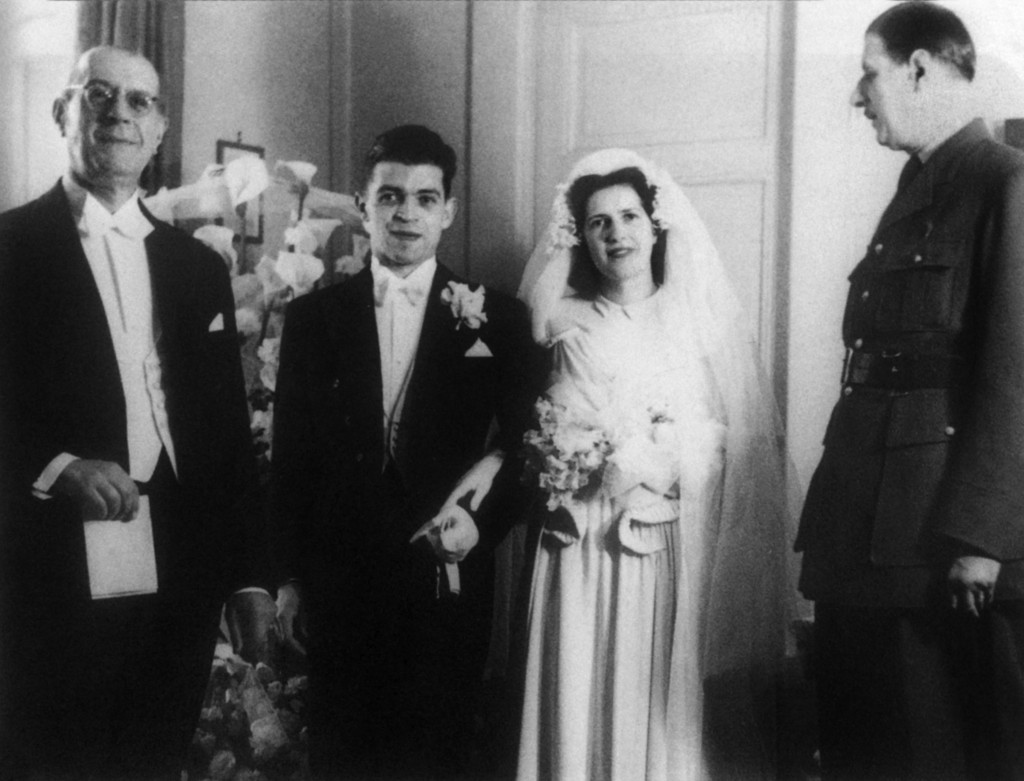
Xavier de Gaulle and his brother Charles join Geneviève for her church wedding to Bernard Anthonoiz in 1946.
What was her relationship with her uncle? How did that relationship shape each of them?
Geneviève and her uncle were very close, in part because he was a tremendous confidante and comfort to her when she needed to talk, or when she needed guidance or refuge. She could talk to him in a way that she could not always talk to her deeply sensitive father, and she knew that she could trust him with her confidences. Charles, for his part, saw a bit of himself in his niece. He respected her for her intelligence and bravery and would seek out her opinions on things from time to time. So there was a great foundation of love, trust and respect between them and I think it empowered them both to pursue the things they felt were right and just for France.
Charles de Gaulle was one of five siblings, including Geneviève’s father, Xavier. Their mother, Jeanne—Geneviève ’s grandmother—died in Geneviève ’s arms. How did “being a de Gaulle” shape Geneviève as a child and as she matured? What were some qualities or characteristics that the family shared, and in what ways did Geneviève share and/or depart from them?
In an old interview, Geneviève de Gaulle told a journalist that being a de Gaulle could be difficult at times, but it could also be a source of great strength. The difficulties likely stemmed from being part of a high-profile political family that not everyone in France agreed with all the time. But the strength came from the way all of the de Gaulles were raised and the support they gave each other. Generations of de Gaulles were brought up embracing hard work, duty to family and country and a strong Catholic faith. They were also raised to have a profound appreciation of culture and history. For example, Geneviève’s father and uncle grew up reciting Homer at the dinner table and engaging in historical and philosophical debates. Geneviève, for her part, read Adolf Hitler’s Mein Kampf when she was 12 years old because her father wanted her to understand that Germany was a rising threat. By the time France fell in June 1940, Geneviève was a smart young woman who knew without question that the occupation was unacceptable and that she had to do something about it. It did not matter that she was young or female; she was equipped with the knowledge, morals and faith that all de Gaulles shared, and therefore could make a difference to France in whatever way she chose, not only in wartime also, but as she showed, for the rest of her life.
Geneviève was only 23 when she was imprisoned in the infamous Ravensbrück camp. Do you think her experiences there changed her? If so, how?
No matter one’s upbringing, it would have been impossible to have survived Ravensbrück without being changed in some way. What Geneviève and other internees experienced there showed them the worst, darkest side of human nature. Who could have ever imagined that humans could have it in them to systematically humiliate, dehumanize and destroy other people? But what these women found in the midst of all of these horrors is that their faith—which was challenged—and their friendships could give them the strength to persevere. The experiences she had in this camp shaped her postwar involvement and were the source of some of the strongest friendships she would ever know.
Was Geneviève treated any better or worse at Ravensbrück because of her famous name?
In the beginning, she was treated no differently from other prisoners, but internees who knew who she was tried to help her in various ways as her physical condition deteriorated.
Once the camp staff became aware of her presence and felt that they might be able to use her as a pawn in a prisoner exchange, she was given better lodging, food and medical treatment. Better, however, is a relative term in this environment.
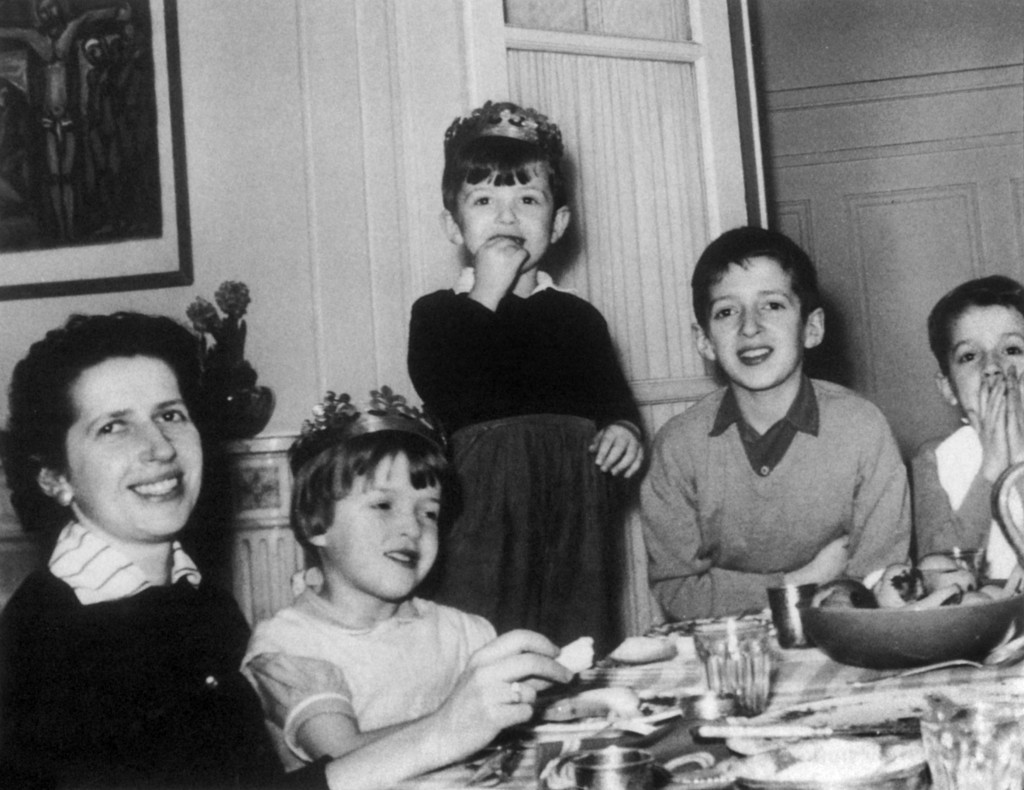
Geneviève and her four children in 1958
Even after living through the occupation, imprisonment, the entirety of World War II, and working steadily after the war on humanitarian issues that must have been emotionally draining, Geneviève was determined to give her four children a “joyful life.” How did she attempt to do that? Do you think she was successful?
By all accounts, she was a very loving and involved mother who doted on her children, cooked them their favorite foods, encouraged them through their academic ups and downs, took them for long walks in the countryside and on wonderful trips. Her children love to talk about their beloved mother to this day, and her daughter Isabelle is not only the proud keeper of Geneviève’s legacy and story but also wonderful, funny company. So I absolutely think she was successful in giving them a joyful life, where they felt free to explore their passions and become the people they were destined to become.
Why should the average American be interested in the life of this deceased French woman?
Look at what this past election has done for civic engagement in our own country. At the end of the day, The General’s Niece is really a story about the choices we make when the world around us becomes an unacceptable place. Do we sit back and let things stand? Do we wait for someone else to make a difference? Or do we decide that we have the power within us to make a change for the better and that we should use that power for the greater good without delay?
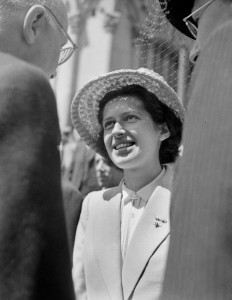 And one last fun one—who would you like to see cast as Geneviève in a biopic?
And one last fun one—who would you like to see cast as Geneviève in a biopic?
People have been asking me this question ever since I first started writing the book, and I’ve changed my mind about this answer a couple of times over the past few years. I absolutely love Marion Cotillard, but as perfect as she’d be, I think she might be a teensy bit too tall for the role. Lately, I’ve been thinking Emma Watson would be a great Geneviève, because of her grace, strength and smarts. She’s a great ambassador for women on top of that, a wonderful role model for girls, and a real class act!
Paige Bowers is a news and features writer whose work has appeared in TIME, USA Today, the Wall Street Journal, the New York Times, People, Allure and Glamour, among other outlets. A lifelong Francophile, she earned a master’s degree in modern European history in 2012 and teaches continuing education classes at Louisiana State University about French history and culture.
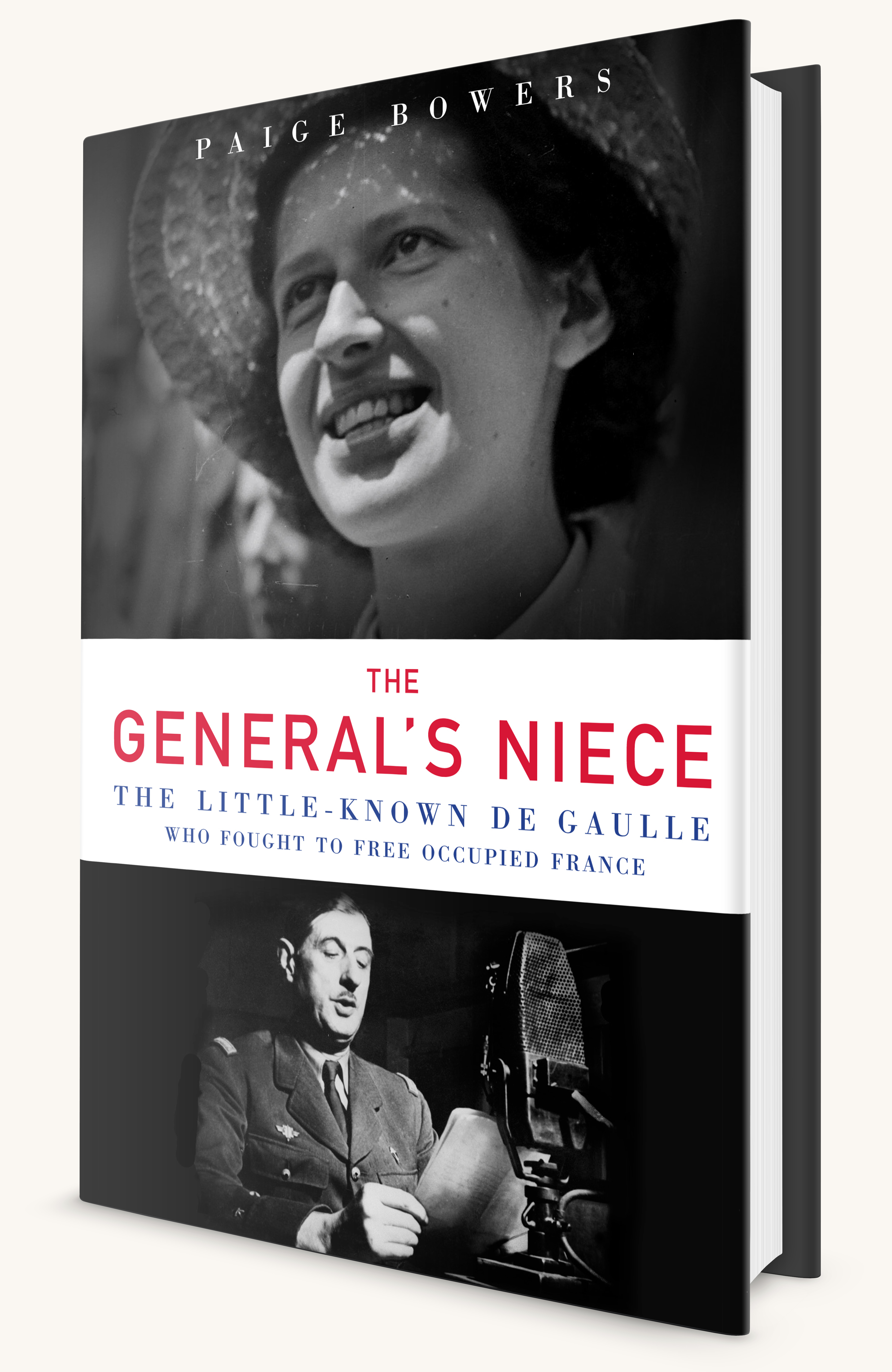
“This book reminds one that a compassionate humanity is possible even in the face of unimaginable brutality. The General’s Niece is essential reading.” —Rosemary Sullivan, author of Stalin’s Daughter: The Extraordinary and Tumultuous Life of Svetlana Alliluyeva
“At last, women who resisted the Nazis in France are being given the long overdue recognition they deserve. This is such an inspiring story, written with clarity and conviction, which demonstrates that the duty of vigilance is ever present.” —Anne Sebba, author of Les Parisiennes: How the women of Paris Lived, Loved and Died under Nazi Occupation
“This stirring biography is a worthy epitaph for a woman who passionately believed that France should never forget its cherished values of justice and fraternity.” —Ronald C. Rosbottom, author of When Paris Went Dark
The General’s Niece: The Little-Known de Gaulle Who Fought to Free Occupied France by Paige Bowers pubs June 1, 2017 and is available wherever books and e-books are sold.
[Get it now $27] [Request a review copy]
No Comments
No comments yet.